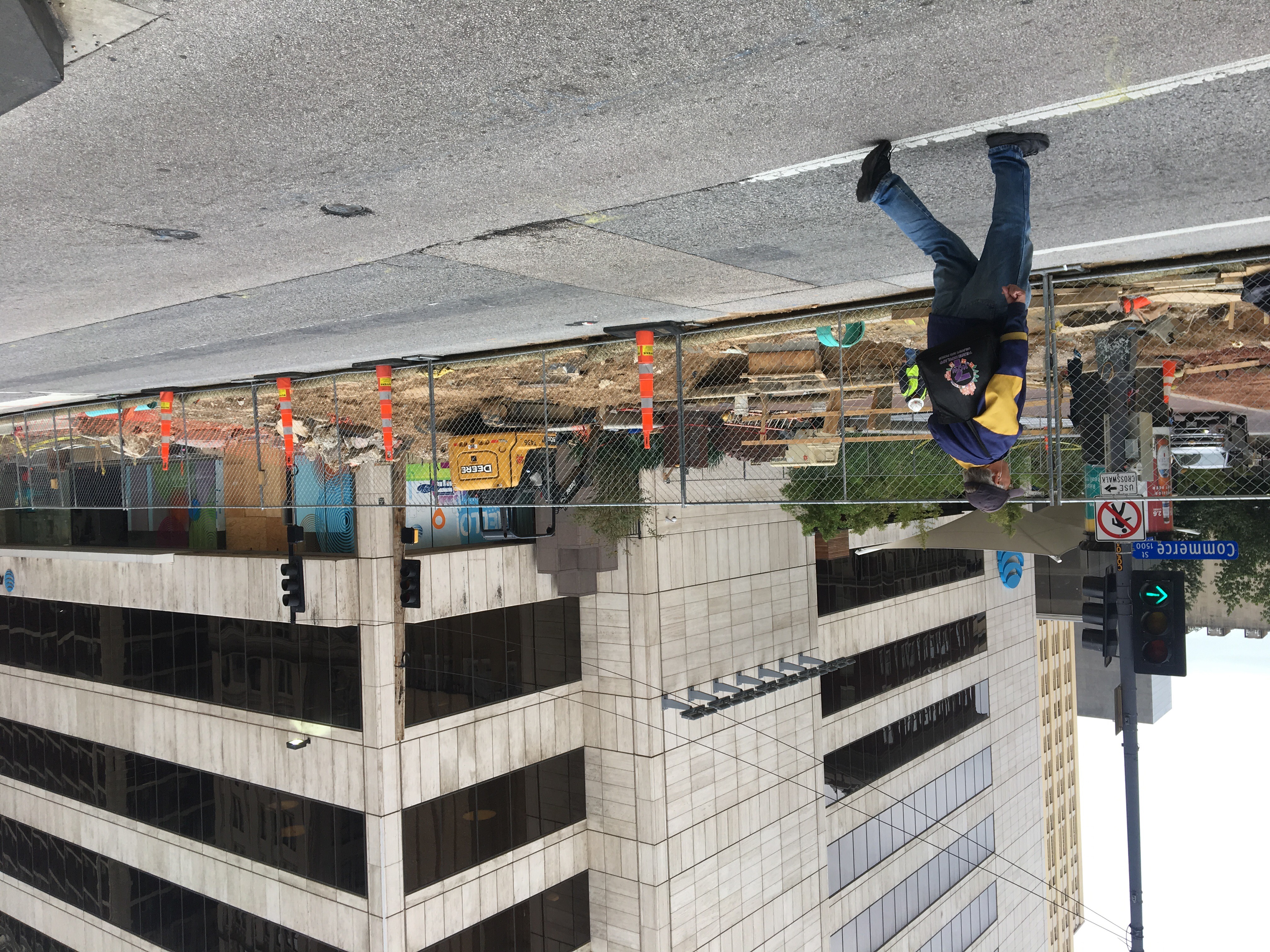The city of Dallas didn’t seem prepared for all the construction that swarmed downtown in the past few years. It’s spread out across the core, like litter in the wind. AT&T practically owns the sidewalks down Commerce Street across from the Adolphus, where it’s building a new “Discovery District.” The sidewalks at Elm and Akard haven’t been open in years. The Drever, the 50-story building that the right of way has been shut down for, has had issues securing financing but the sidewalks have remained closed. We have a rather successful series called Dallas Hates Pedestrians, which includes all the ridiculous sidewalk closures we can find. City staff, at the nudging of the public and the shoving from council members Philip Kingston and Lee Kleinman, have finally drawn up a plan to address the right of way issues.
They include a mix of enforcement and accountability that would, hopefully, allow the city to bar bad actors from winning contracts and require the developers to prioritize residents in how they work the right of way. The discussion about sidewalks expanded far beyond walkability and safety: there are planned safeguards against early morning construction noise, a more nuanced contractor selection process for all city departments, stepped up enforcement of violations, even consideration of the size of the lips on the metal plates that cover street work and clang and bang when cars zoom over them. The new code would also reclassify street quality by condition instead of age, and hold contractors accountable for leaving the right of way as good or better than before they got there.
So here are two examples of what city staff is trying to rein in. They briefed the council on it last week, the third such presentation to make it in front of a committee or the full council. First, here’s Kleinman talking about AT&T’s mess of Commerce, which includes fencing that forces walkers off the sidewalk and into the street:
“Ironically a huge pedestrian plaza is being built in downtown and they’re doing more to block the sidewalks around that plaza to try to build that plaza—I mean, it’s kind of an ironic situation.”
And here is a utility horror story, courtesy Kingston:
“(Dallas Water Utilities) has a project right now at Skillman and Live Oak where a contractor flipped over a backhoe. The driver of the backhoe then refused an on-site drug test and was terminated. The contractor’s other employees then utilized a smaller backhoe and a chain to try to upend the flipped-over backhoe. The chain broke, sending links of steel chain flying at high speed, and that contractor is still performing that contract, which, by the way, is three months past due.”
The redrawn policy encompasses those situations and more. There is a growing belief that the city is handing over too much of itself to developers and contractors. So staff decided to up enforcement of the right of way, giving 13 employees the power to issue citations if the contractor is violating their agreement with the city. They’ve issued 314 from August of 2018 through March of this year, generating somewhere around $100,000.
“I’m not necessarily interested in utilizing that as a source of revenue, although the revenue number gives us an idea of the size of the problem,” Kingston said. “The other thing it gives us is an idea of how fat and happy construction is right now. With the incredible demand for construction, these companies can be leaned on to be more responsible because their profit margins are sky high right now.”
Included in staff’s presentation is a new way of vetting contractors. The city is establishing a scoring matrix. Robert Perez, the assistant director of Right of Way Management, says this “allows for other variables than just low bid for a contractor to be selected.”
“It allows us to look at experience, workmanship, things of that nature,” he added, meaning a bad actor that comes in cheap won’t win the bid outright.
The bids would be sealed, a practice employed by cities like Austin, San Antonio, and San Diego. So once the Skillman contractor that Kingston mentioned got pumped into that matrix, it probably wouldn’t win another bid with the city—regardless of how low it was. There was broad support for such an idea.
“I want them jettisoned from the process so they’re not repeat offenders,” said Councilman Rickey Callahan, Pleasant Grove’s representative.
Perez said the scoring matrix should be finished by May. The city would then hold public discussions; a previous meeting about this packed out the council chambers. Expect a vote sometime late in the summer.
“I think historically the city has, in an effort to not get in the way of progress, has let our right of way be abused or let our right of way lean more toward the users of the right of way as opposed to the community at large,” said Kleinman, the chair of the Mobility Solutions, Infrastructure, and Sustainability Committee. “But this belongs to the citizens, and citizens should be able to use it.”






